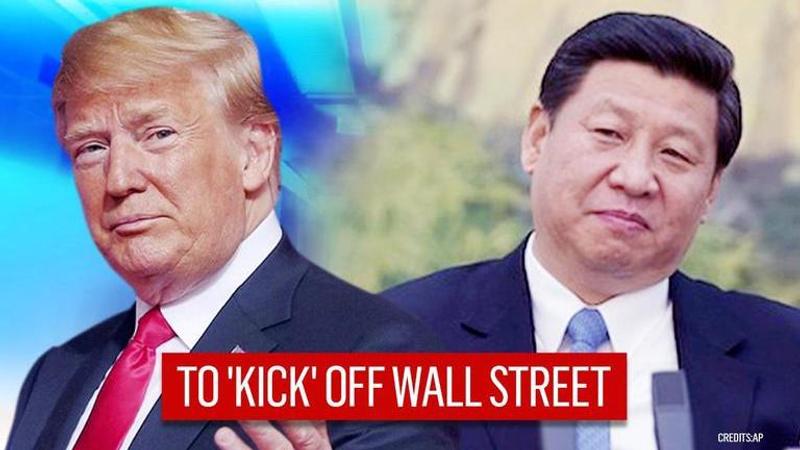Published 07:35 IST, December 5th 2020
US Senate approves legislation to ‘kick’ China off Wall Street; awaits Trump's nod
At least eight leading Chinese firms and 217 other companies were delisted from three largest US exchanges including New York Stock Exchange and NYSE American

A Bill to delist the major Chinese firms from US stock exchanges is set to make its passage to the US President Donald Trump’s table after the Senate unanimously approved legislation to ‘kick’ China off Wall Street. Amid the heightened trade tensions between the two nations, Senator John Kennedy, a Republican from Louisiana, and Chris Van Hollen, a Democrat from Maryland initiated a Bill that would now necessitate the Chinese businesses to “prove” that they aren’t under the direct influence of a foreign government. Post an audit by the US Public Company Accounting Oversight Board, it will be decided, based on analysis for over several years, whether a Chinese firm is deemed as a threat to the national security and should the firm’s securities be banned from the exchange.
In a statement, senator Kennedy said that while he wouldn’t want to get in the middle of a cold war, he definitely wants China to “play by the rules”. According to US-China Economic and Security Review Commission, at least eight leading Chinese firms were listed on the NASDAQ, including 217 Chinese firms that were exempted on the three largest US exchanges including New York Stock Exchange, and NYSE American, whose operations link back to homeland country.
Arranged with respect to the size of the market cap, there were at least 13 national level Chinese state-owned enterprises (SOEs) that were delisted on the new Bill. The list was compiled on the basis of information traced from the database record of the New York Stock Exchange, NASDAQ, commercial investment databases, and the Public Company Accounting Oversight Board (PCAOB). "US policy is letting China flout rules that American companies play by, and it's dangerous," Senator John Neely Kennedy said in a statement.
Audit-oversight rules apply
According to the Bill, any firm would be considered “Chinese” if it was identified as having headquarters in the People’s Republic of China (PRC) by the relevant stock exchange; or, lists a PRC address as its principal executive office in filings with US Securities and Exchange Commission. All companies that were on the US stock exchanges that dealt with offshore corporate entities and withheld primary Chinese corporate domicile in their listing information, will run the legal, regulatory, and financial risks in the US.
The audit-oversight rules apply to some of the prominent Chinese firms such as Alibaba Group Holding Limited, China Life Insurance Company Limited, and China Mobile Limited. The bipartisan co-sponsors of the legislation said earlier this year that the aim of the Bill was to "kick deceitful Chinese companies off US exchanges." The initiative commenced after Luckin Coffee, the Chinese coffee firm got tangled in massive accounting irregularities and was prohibited from NASDAQ in June.
Updated 07:35 IST, December 5th 2020




